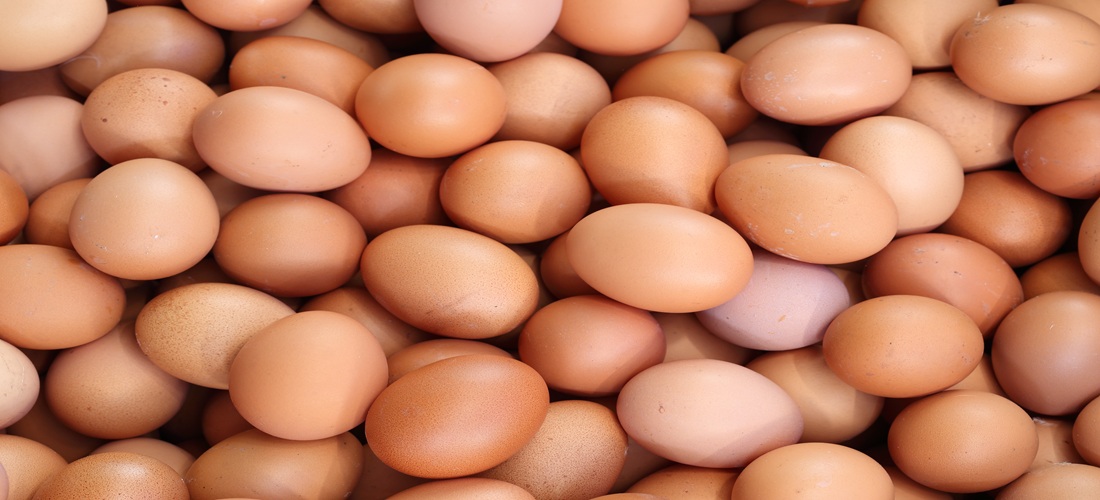
US turns to Brazil for eggs and considers other sources during bird flu outbreak
Mar, 25, 2025 Posted by Gabriel MalheirosWeek 202513
The U.S. has almost doubled imports of Brazilian eggs once used only for pet food and is considering relaxing regulations for eggs laid by chickens raised for meat, as President Donald Trump’s administration seeks to bring down sky-high prices spiked by bird flu.
While none of the Brazilian or broiler chicken eggs would wind up on grocery shelves, they could be used in processed foods such as cake mixes, ice cream or salad dressing, freeing up more fresh eggs for shoppers. Allowing use of broiler chicken eggs would require changing regulations, and some food safety experts warned that this could risk tainting food products with harmful bacteria.
Nationwide economic strain persists from the virus that has wiped out nearly 170 million chickens, turkeys and other birds since early 2022. Grocery shoppers peruse thinly stocked shelves, restaurants have raised menu prices, and wholesale egg prices surged 53.6% in February before easing a bit in March.
The egg shortage has fueled food inflation even as Trump’s trade disputes have threatened to disrupt supply chains and raise costs for fresh produce and other goods.
In February, the administration announced a $1 billion plan to lower egg prices, which includes helping farmers prevent the spread of the virus and researching vaccine options. The Trump administration is also promoting imports from countries such as Turkey, Brazil and South Korea that typically send few eggs to the U.S., and has asked Europe to send more.
U.S. egg imports from Brazil in February increased by 93% from a year earlier, the Brazilian Animal Protein Association said.
The chart below exhibits the monthly behavior of shipments of Brazilian egg exports between January 2021 and December 2024. This information was derived from DataLiner, a Datamar-powered maritime intelligence product.
Egg Exports | Brazil | Jan-Dec 2021 vs Jan-Dec 2024 | TEUs
Source: DataLiner (click here to request a demo)
The U.S. Food and Drug Administration told Reuters it is reviewing a petition from the National Chicken Council to allow sale for human consumption of eggs laid by chickens that the council’s members raise for meat.
Currently, broiler chicken producers destroy millions of those eggs because they lack sufficient refrigeration to meet an FDA food-safety requirement.
In 2023, the FDA denied a similar request from the council, citing salmonella risk. The chicken industry hopes the agency will now support the effort as aligned with Trump’s goal of slashing unnecessary regulations, said Ashley Peterson, the council’s senior vice president of scientific and regulatory affairs.
“We need more yolks for folks,” said U.S. Representative Dusty Johnson, R-South Dakota, who is co-sponsoring a bill to allow the eggs to be used in food products.
MEAT EGGS DUMPED
Each year, broiler chickens lay about 360 million eggs that are not fit to hatch chicks, according to the council. Some are used to manufacture vaccines, exported or used for other purposes, the petition said, but most are destroyed.
Wayne-Sanderson Farms, a top U.S. producer of chicken meat, probably throws away about 500,000 eggs per week that do not meet specifications, said Mark Burleson, the company’s senior director of veterinary services.
Such eggs were once sold to egg-breaking plants to be pasteurized and used in processed foods. But in 2009, an FDA rule aimed at reducing illness from salmonella required eggs to be refrigerated at 45 degrees Fahrenheit (7 degrees Celsius) starting 36 hours after they are laid.
Chicken producers keep broiler eggs at about 65 degrees and do not have equipment in place to refrigerate them at the lower temperature on FDA’s timetable, the council and farmers said.
The council said the eggs do not threaten public health because they are pasteurized. It said it was not aware of safety issues with them before the 2009 rule.
Food safety experts said insufficient refrigeration may increase pathogens to levels where pasteurization is not fully effective.
“There is a real possibility of trading off increased risk of foodborne illness for some proportion of eggs going into the egg products market,” said Susan Mayne, who was director of FDA’s Center for Food Safety and Applied Nutrition when it considered the previous petition.
EGG IMPORTS, LAWS RECONSIDERED
The Trump administration in January allowed imports of Brazilian eggs for processing into food products for people, after they were previously only allowed for use in pet food, according to the Brazilian Animal Protein Association.
Brazilian authorities had already proved that Brazil meets U.S. requirements to export eggs to be processed for human consumption, the association said.
However, Brazil is affected by Newcastle disease, a virus that often kills poultry, the U.S. Department of Agriculture said, and the country cannot supply the U.S. with eggs for sale in grocery stores or pasteurized liquid eggs for human consumption.
States including Nevada and Arizona have paused animal welfare policies that required eggs to come from cage-free hens, in an effort to address tight supplies and high prices.
Reporting by Leah Douglas in Washington and Tom Polansek in Chicago. Additional reporting by Ana Mano in Sao Paulo; Editing by Emily Schmall and David Gregorio
Source: Reuters
-
Ports and Terminals
Jul, 11, 2022
0
Antaq to hold public hearing on services provided by container terminals
-
Blog News (ENG)
Oct, 13, 2023
0
Paraná ports aim 203% soybean throughput increase in the last quarter
-
Shipping
Dec, 22, 2023
0
HMM announces US$1,500 GRI from India to East Coast of Latin America
-
Trade Regulations
Jan, 28, 2022
0
Brazil gains leeway to exert greater pressure on India and Indonesia

